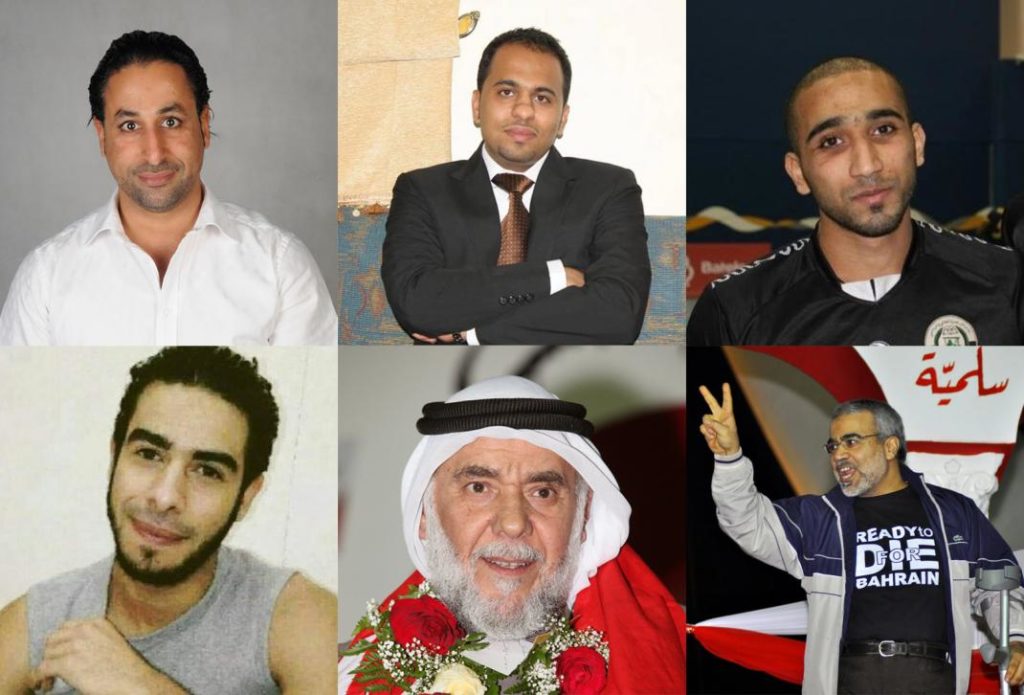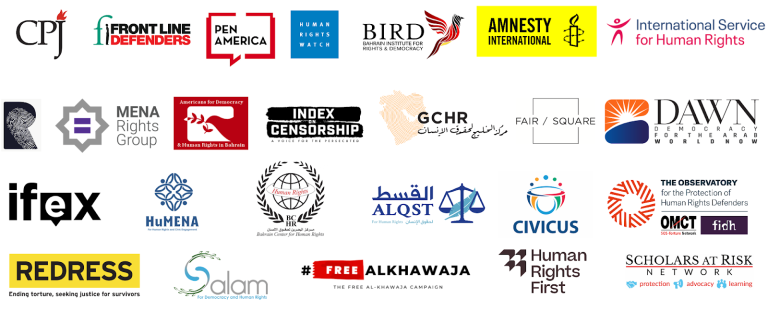8 October 2019 – Bahrain’s authorities are failing to provide adequate medical care to high-profile prisoners, Human Rights Watch and the Bahrain Institution for Rights and Democracy (BIRD) said.
Two detained human rights defenders, as well as the family members of four detained opposition activists, told Human Rights Watch and BIRD that prison authorities are arbitrarily denying the prisoners urgent medical care, refusing to refer them to specialists, failing to disclose medical examination results, and withholding medication as a form of punishment. All six detainees are serving prison terms in connection with their prominent roles in opposition and pro-democracy protests in 2011 onward.
“It is outrageous that Bahraini authorities are denying detainees medical care that they urgently need, in some cases putting their lives in danger,” said Joe Stork, deputy Middle East director at Human Rights Watch. “Many of these people should not have been imprisoned in the first place, and arbitrary denial of medical care may amount to extrajudicial punishment.”
Denying a prisoner needed medical care violates the United Nations Standard Minimum Rules for the Treatment of Prisoners, known as the Mandela Rules.
The health of Abduljalil al-Singace, 57, has deteriorated significantly in detention, his family said. Al-Singace, an academic who was a spokesman for Al Haq, an unlicensed opposition group, is serving a life sentence for his prominent role in the 2011 protests. Al-Singace, who suffered polio as a child and needs to be able to hold crutches to walk, has been experiencing severe chest pain, numbness in his fingers, and shaking in his left hand since August 22, 2019.
Al-Singace’s daughter said that he saw the prison doctor on August 28, for the first time since 2017. Earlier requests for medical attention for neck and back pain that his family said resulted from torture had been denied. Nor did prison officials authorize the white blood cell checkups he needs due to complications arising from a prolonged hunger strike in 2015.
The prison doctor recommended on August 28 that he should see a heart specialist in the Bahrain Defense Forces (BDF) Hospital. On the day of the appointment, prison authorities told al-Singace that they would not take him there as he had refused to put on the prison uniform or wear shackles, his family said.
Hassan Mushaima, 71, the head of Al Haq, was sentenced to life in prison for his peaceful opposition activity. Mushaima is recovering from lymphoma and requires screening tests every six months. Mushaima’s son said that the last screening occurred in August 2018, following the son’s 46-day hunger strike in London. Mushaima did not receive the results until April 2019. Prison authorities promised to conduct another screening in August, Mushaima’s family said, but had not as of October 2.
Mushaima’s son said that authorities routinely denied Mushaima specialized medical care for his chronic illnesses, which include diabetes, high blood pressure, and gout. Prison authorities insist on shackling Mushaima during transfers to hospital appointments, but he has refused to go under these circumstances, considering it humiliating and unnecessary, his son said.
Under the Mandela Rules, prisoners who require specialist treatment should be transferred to specialized institutions or to civil hospitals. Since 10 prisoners escaped from Jaw Prison on January 1, 2017, authorities have shackled all prisoners whenever they leave their cells. International human rights mechanisms have said that the use of restraints on elderly or infirm prisoners who do not pose an escape risk can constitute ill-treatment. Rule 47 of the Mandela Rules states that restraints should only be used to prevent escape or to prevent prisoners from injuring themselves or others.
Naji Fateel, 45, and Ali Hajee, 36, who are also serving long sentences due to peaceful opposition activities, also reported consistent denials of medical care. Fateel suffers from spinal and other injuries that he said resulted from torture in detention, as well as high cholesterol. He told Human Rights Watch that prison authorities do not provide him with required medications, and several times canceled scheduled operations for injuries to his arm and leg. Hajee said prison authorities have denied him permission for a necessary surgery to his lower jaw as well as dental implants.
The Bahrain Independent Commission of Inquiry (BICI), set up by King Hamad to investigate the government’s response to the demonstrations in February and March 2011, concluded that approximately 300 people had been convicted by military courts solely for exercising their right to freedom of expression and assembly. The commission said the authorities should “commute the sentences of all persons charged with offenses involving political expression, not consisting of advocacy of violence.”
Jaw Prison authorities have also denied medical care to prisoners convicted of violent political crimes. Elyas al-Mulla, 28, has stage three colon cancer. His mother told Human Rights Watch that he is suffering from colon pain, pain under his ribs, nausea, and fatigue. Al-Mulla was transferred to a hospital briefly at the end of August for tests, but his mother said she was not informed of his condition and prison authorities have not given him the test results. She said that after chemotherapy sessions prison authorities did not always provide him with the necessary immunity medication, nor did they perform tests requested by al-Mulla’s radiologist. Al-Mulla’s mother said that every time he was transferred to and from a hospital, including after his chemotherapy sessions, authorities shackled him, often causing him severe pain and bleeding.
A family member of Ahmad al-Arab, 27, told Human Rights Watch and BIRD that al-Arab has not been permitted to visit a doctor or receive medication since he tried to escape from prison in 2017. The family member said that al-Arab suffers from severe pain in his leg and his back, as well as several broken teeth, which they alleged were the result of torture.
On August 15, more than 600 prisoners in the Jaw Prison and Dry Dock Detention Center began a hunger strike to protest prison conditions, including denial of medical care.
The people who spoke with Human Rights Watch and BIRD said they had not recently filed complaints with Bahrain’s oversight agencies, including the National Institution for Human Rights and the Ministry of Interior Ombudsman, saying they did not trust them or have confidence that they would help.
Human Rights Watch has found that both of these bodies have repeatedly failed to investigate credible allegations of prison abuse or to hold officials accountable. The UN Committee against Torture has raised concerns that these bodies were neither independent nor effective.
“Bahrain’s oversight bodies should uphold their mandates and investigate these serious allegations of medical negligence,” said Sayed Ahmed Alwadaei, advocacy director at BIRD. “Without effective and independent oversight institutions promoting accountability for human rights violations, prisoners remain at risk of reprisals while perpetrators continue to act with impunity.”





